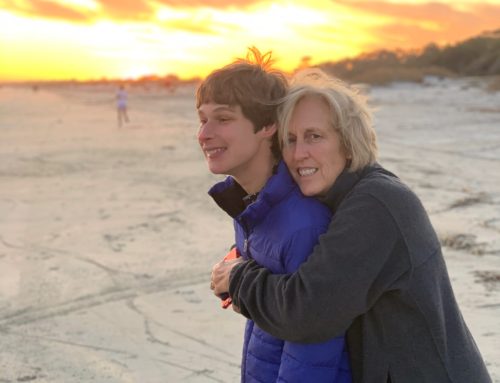I remember the day my husband and I sat in the doctor’s office in Washington DC’s Children’s Hospital and received the news that the concerns we had over Mary’s lack of development were indeed due to brain damage. Trying to absorb the full implication of the doctor’s words was overwhelming. So, we took in what we could process and started on a lifelong journey to absorb the rest (Brian and I absorbing things at different rates). When we heard the news, I thought of the shattered dreams I had for my daughter: our daughter would possibly not talk or walk, let alone get married or go to college. What physical changes would we have to make to our home? How would I have time for our other children? The list of questions was long, but I must confess that in asking myself all these questions, I don’t think I questioned what impact this diagnosis would have on our marriage. I don’t know why, but I didn’t expect or anticipate the issues that arose in our marriage.
Most marriages that suffer a loss (death of a child, having a child with a disability) are affected by what we could call “collateral damage”. Collateral damage is defined as “any damage or wounding of an unintentional target”. Brian and I never intended or intentionally hurt each other, but we did. We were both struggling, both hurting and well, “hurt people, hurt people”. At the time, most of my energy, time and concern went into raising Mary and getting her the care she needed. I had little left over for Brian. The deficits we individually felt with the assignment of raising Mary created an environment where we placed unrealistic expectations on each other. The seemingly “unfairness” of the situation sent us looking for someone or something to blame or at least, something or someone to change. And of course, we often didn’t look further than each other. Brian and I have worked through this period and believe that our marriage is stronger than ever, but I think that this initial reaction is common among parents raising a child with special needs. If you and your spouse are relatively new to life with a child with special needs, we have a few suggestions regarding this time in your life.
Recognize the tendency you might have to unfairly blame your spouse. This is a time in which you might have some anger and anger usually goes looking for somewhere to land. Sometimes a spouse does need to change, but often it is the disability or overall circumstances that is the source of your anger.
Realize that you are both hurting, not just you. And probably both of you may not have the ability to hold the other one up. This will change overtime. Brian and I now are each other’s primary supporter, but early on in our marriage, we couldn’t rescue each other because we were each barely holding our head above water ourselves.
This might be a good time to seek out a counselor, mentor, pastor or other parents of a child with special needs who are a little older than your kids. At this time in your life, it might be helpful to seek support from someone other than your spouse.







Another great and thought provoking article. It made me think back to my parents marriage and how Deb’s arrival into the world impacted their marriage.
Thanks my friend. You know the experience well having been a life-long and faithful brother to a sister with special needs.